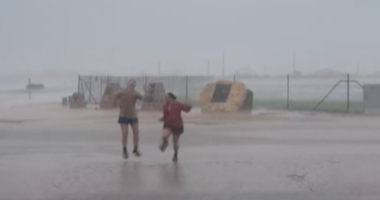Share this @internewscast.com
This isn’t the first instance where a politician’s tears have become newsworthy.

The curiosity surrounding the reasons behind Rachel Reeves’ tearful moment in parliament might reflect broader perceptions about expressing emotions at work. Source: AAP / House of Commons/UK Parliament
Prime Minister Anthony Albanese has cried in public several times. Julia Gillard teared up during the launch of the National Disability Insurance Scheme (NDIS) and Kevin Rudd cried when resigning from parliament.
“But crying is one of the body’s strongest ways of self-soothing. It’s neutral. It helps us recalibrate.”
The taboo of tears
Dober agrees — and says suppressing those emotional reactions comes at a cost.
“When we cry, amazing chemicals are released … endorphins that help us emotionally recalibrate.”
Does crying at work damage your reputation? That depends
In professions demanding emotional involvement — such as teaching, social work, or nursing — crying is often perceived as a sign of burnout or compassion fatigue.
“It might be seen as a sign of weakness and impact your image in a negative way,” she says.
The gender gap
“Whereas a lot of research sees that women are interpreted to be losing control or that they don’t have the same emotional intelligence to be able to hold those more senior level roles … it can be quite damaging to their careers.”
“Ask instead: what are the triggers — regardless of gender — that have brought somebody to this state?”
Making space for emotion at work
“What we don’t want is people who have these emotions to feel like they’ve absolutely got to bottle them up, otherwise it’s going to be a detriment to them in their career,” she said. “Because that’s also not healthy.”












